Frederique Laforest
Zero-Shot Question Generation from Knowledge Graphs for Unseen Predicates and Entity Types
Feb 19, 2018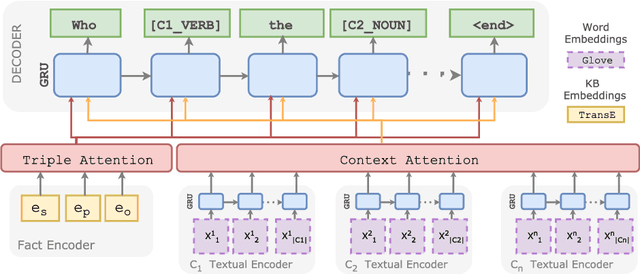
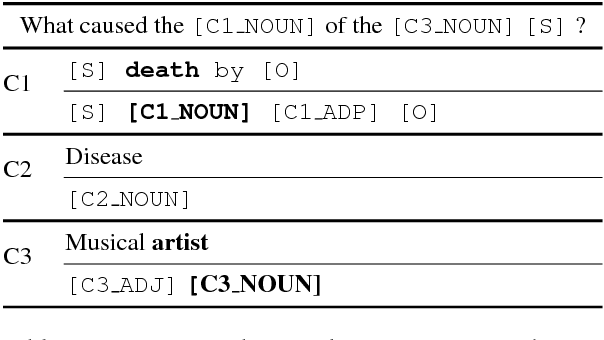
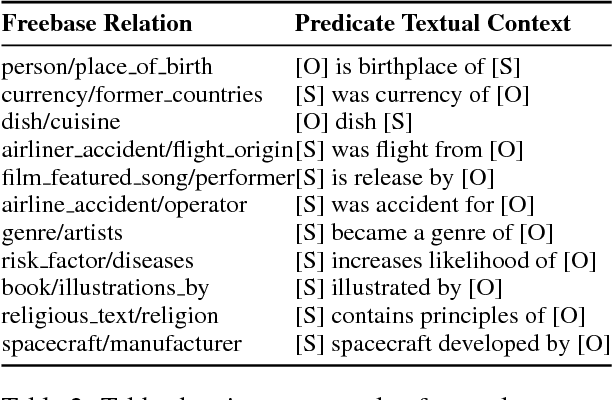
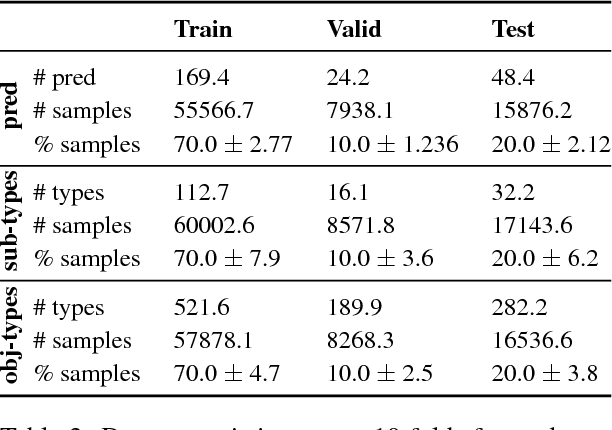
Abstract:We present a neural model for question generation from knowledge base triples in a "Zero-Shot" setup, that is generating questions for triples containing predicates, subject types or object types that were not seen at training time. Our model leverages triples occurrences in the natural language corpus in an encoder-decoder architecture, paired with an original part-of-speech copy action mechanism to generate questions. Benchmark and human evaluation show that our model sets a new state-of-the-art for zero-shot QG.
Unsupervised Open Relation Extraction
Jan 22, 2018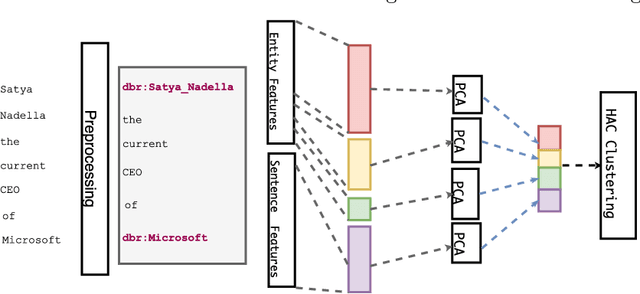

Abstract:We explore methods to extract relations between named entities from free text in an unsupervised setting. In addition to standard feature extraction, we develop a novel method to re-weight word embeddings. We alleviate the problem of features sparsity using an individual feature reduction. Our approach exhibits a significant improvement by 5.8% over the state-of-the-art relation clustering scoring a F1-score of 0.416 on the NYT-FB dataset.
Neural Wikipedian: Generating Textual Summaries from Knowledge Base Triples
Nov 01, 2017
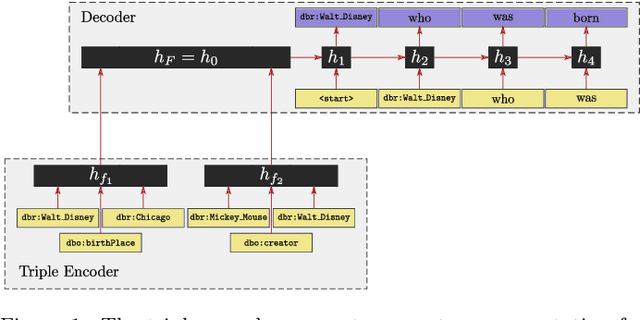


Abstract:Most people do not interact with Semantic Web data directly. Unless they have the expertise to understand the underlying technology, they need textual or visual interfaces to help them make sense of it. We explore the problem of generating natural language summaries for Semantic Web data. This is non-trivial, especially in an open-domain context. To address this problem, we explore the use of neural networks. Our system encodes the information from a set of triples into a vector of fixed dimensionality and generates a textual summary by conditioning the output on the encoded vector. We train and evaluate our models on two corpora of loosely aligned Wikipedia snippets and DBpedia and Wikidata triples with promising results.
 Add to Chrome
Add to Chrome Add to Firefox
Add to Firefox Add to Edge
Add to Edge